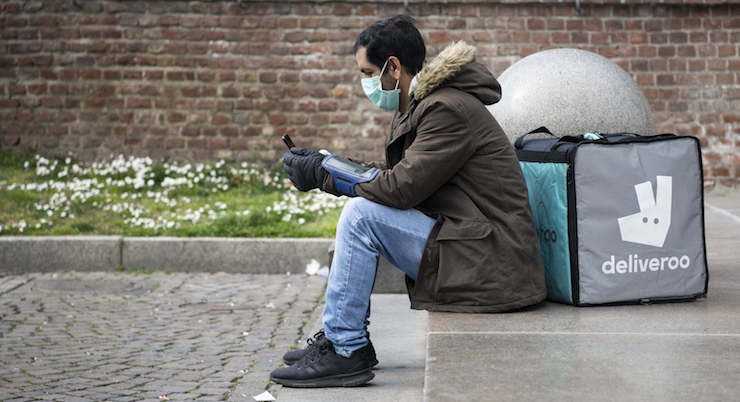The noose continues to tighten around gig economy companies that insist they’re not actually employing the people who work — and sometimes die — for them.
The fortunes of gig economy companies — or what should more accurately be called the exploitation economy — are going from bad to worse.
Yesterday, former Deliveroo rider Diego Franco, backed by the Transport Workers Union, won his unfair dismissal claim against the international company, with Fair Work Commissioner Ian Cambridge explicitly stating that Franco had an employment relationship with Deliveroo, not that of a contractor, and referred to the company’s “callous and perfunctory termination of his services”.
The wave of regulatory pushback against the exploitation industry continues to build around the world. The Spanish government has recently imposed new rules requiring companies to convert “contractors” to employees, following a court ruling last year. In the United States a fortnight ago, Biden administration labor secretary Marty Walsh warned “in a lot of cases gig workers should be classified as employees”, opening the way for the labor department to toughen up regulatory requirements for the likes of Uber, Lyft and DoorDash.
Read more about changes to the gig economy…
Already a subscriber? Log in to keep reading.
Or, register your email address for a FREE 21-day trial.








